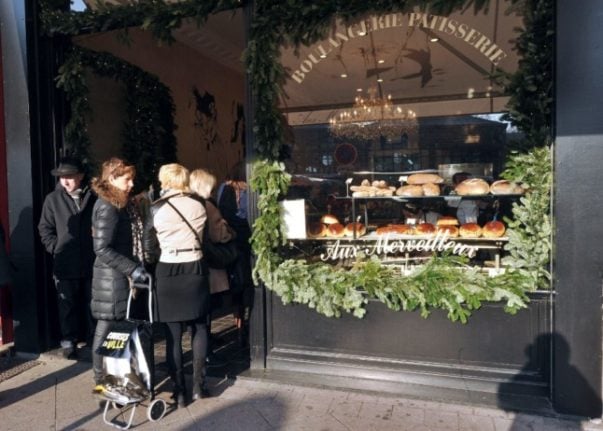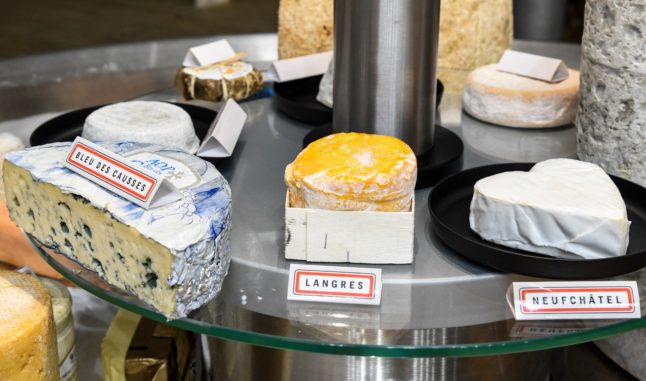Having lived in Paris for a year, I’ve tried to pick up some of the best French habits for health and happiness. A lot of these revolve around food, but in France the good life begins at the stomach so I make no apology.
Picking up fresh bread every morning
A fresh – and hopefully warm – baguette is an essential daily purchase in France.
Even during the first Covid-19 lockdowns, when streets were mostly empty and every excursion had to be justified with an official permission slip, lengthy queues outside of boulangeries were a regular sight. And with good reason. The day gets off to a much better start if you’re well-fed, and what better breakfast than fresh bread?
READ ALSO Long lunches, daily bread and complaining
Making the most of your lunch break
The French take their lunch breaks seriously.
Of course, it depends on the specific industry and office culture, but most French workers are passionately protective of their one-hour-long lunch break.
I learned this the hard way, receiving a stern lecture from a former colleague after I shamefully attempted to return to work after just 35 minutes, but I’m fully converted now.
Taking a proper break from work is great for stress levels, and it also helps clear your head, so you’re likely to be much more efficient later on.
In France, the lunch break is also a time for eating well. It’s not uncommon to see culinary masterpieces coming together in a shared office kitchen, or groups of colleagues heading out to a local restaurant, and nothing breaks up the day quite like a delicious filling meal.
Wandering aimlessly through the streets
The French art of flânerie – strolling the streets with no aim other than observation – is worth studying.
Popularised in literature by writers such as Charles Baudelaire, flânerie offers great opportunities for discovery – both personal and external. Strolling without any specific direction, you’ll likely come across beautiful corners you’d never otherwise have noticed and get to know your neighbourhood far better than if you’re always walking a pre-planned Google Maps route.
READ ALSO 9 French words that English really should have too
Swapping big supermarkets for specialist stores
Specialist stores – from cheese shops to florists – are thriving in France.
By shopping in specialist stores, you’ll likely find a wider range and higher quality of produce, and also support small local businesses rather than big conglomerates.
You’ll also get advice from people who really know what they’re talking about. Personally, expert cheese suggestions are my love language.
READ ALSO Fonduegate – why the customer is not always right in France
Saying what you mean
Speaking frankly and openly is highly valued in France. The French are less likely to let false politeness mask their true opinions, nor to hold back from feisty political debate.
Though a little intimidating at first, this allows for deeper and more honest discussions.
It’s also just a lot more interesting – if you can handle it. Hearing people’s critical feedback and controversial views makes for a much more entertaining conversation at the dinner table and allows you to truly get to know the people around you.
READ ALSO The French are not really rude, it’s just a big misunderstanding



 Please whitelist us to continue reading.
Please whitelist us to continue reading.
On trying to find decent baguettes in London.
Returning from Paris to London, I wanted a source for decent fresh baguettes and trawled the local bakeries and supermarkets with in-store ovens. Half a dozen incomprehending conversations later, I found just one: Gail’s Bakery. They take them precooked from a central hub, but perfectly acceptable if you get them early.
The baker immediately understood “à l’ancienne” and shared a tip: squeeze the baguette. If it’s got the proper open texture, it will spring back.
Squeezing bread – the sign of a former French resident.
Unfortunately, one regularly sees French men and women continuing this habit and working their way through whole trays of peaches and other soft fruit and leaving vast quantities of pre-bruised fruit for the next buyer.